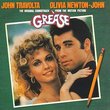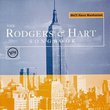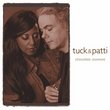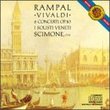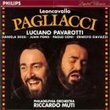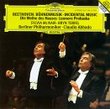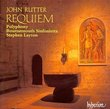| All Artists: Schumann, Uchida Title: Schumann: Carnaval Kreisleriana Members Wishing: 0 Total Copies: 0 Label: Phillips Records Release Date: 3/14/1995 Genre: Classical Styles: Forms & Genres, Fantasies Number of Discs: 1 SwapaCD Credits: 1 UPC: 028944277722 |
Search - Schumann, Uchida :: Schumann: Carnaval Kreisleriana
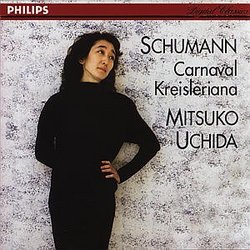 | Schumann, Uchida Schumann: Carnaval Kreisleriana Genre: Classical
|
Larger Image |
CD DetailsSimilarly Requested CDs
|
CD ReviewsSchumann for Today JMB1014 | USA | 02/27/2003 (5 out of 5 stars) "Mitsuko Uchida deservedly ranks high among modern interpreters of Mozart and Schubert. Her Debussy "Douze Etudes" is flawless and her Beethoven "Emperor" a rousing and marvelous success. After hearing her "Keisleriana" and "Carnaval," however, I wonder why she has not recorded more Schumann? These are brilliant, articulate and wondrous readings. From the first bars of the "Kreisleriana," one of Schumann's dark and demanding collections of short pieces, which is closest in tone to his later "Humoreske," she sets the pieces ablaze with intellectual fire, powerfully evoking their rich emotional content and always with awe-inspiring technique. Uchida does not indulge the kind of mannered and oblique approach too many pianists (and others) adopt in approaching Schumann, as though he must be humored rather than enjoyed, as though he were mad first and a genius second. Few composers have been as thoroughly - and ineptly - compartmentalized and labeled as Schumann: he was trapped in the throes of a weird romantic, dualistic personality (Florestan and Eusebius), he mastered only short works for piano and could not handle long works, his later works are incomprehensible, etc. These and other shibboleths are being smashed by the dazzling recordings of Ms. Uchida, Vladimir Horowitz, John Eliot Gardiner, Wolfgang Sawallisch and, most recently, Barbara Bonney, Gidon Kremer and Arkady Volodos. See also John Worthen's very readable recent biography, "Schumann: Life and Death of a Musician," which is written for laypersons and debunks much of the clamorous dogma that Schumann must be seen first and foremost as mad, and John Daverio's excellent book, "Robert Schumann: Herald of a New Poetic Age," which is written for those with more musical background. Among composers of lieder, Schumann has only one peer: Schubert. The legions who mindlessly venerate Schubert as the one great master of German song (and he plainly deserves to be venerated) have apparently never spent the time with Hermann Prey's or Barbara Bonney's gorgeous recordings of the lieder, to say nothing of Graham Johnson's superb set on Hyperion. But for me, the "Kreisleriana" and its cousins, "Carnaval," "Humoreske" and, say, "Bunte Blatter," will always remain among the most intellectually ravishing, intimate and masterful of all classical works for piano or otherwise. It is a credit to Ms. Uchida's artistry that this recording stands out among the numerous versions by such masters as Cortot, Horowitz, Rubinstein, Ashkenazy and Kempff, to say nothing of Argerich, O'Rourke, Cooper, Schiff, Demus, Lupu and many others. The sound is splendid and she plays the pieces as Schumann revised them, not in the original version, as Pollini in his recording of the "Kreisleriana" does. She also includes the brief "Sphinxes" in "Carnaval." I sincerely hope Ms. Uchida will add more of the Schumann piano repertoire to her recorded works once - or perhaps even while - she is propounding Beethoven's piano music and accompanying Mozart violin sonatas and Schubert lieder (with Ian Bostridge). After this taste of what she can do, I want very much to hear more.
I have read the other review of this disc and I wonder at the description of the "Carnaval" as "joyless," and the piano as "shallow and clangy." I have listened to this CD again and concluded that I cannot agree with either criticism. The piano is very fine and the "Carnaval" is rendered with a good deal of Romantic brio and passion. I stand by my original comments. Also, the disc has been remastered and released again." |

 Track Listings (29) - Disc #1
Track Listings (29) - Disc #1
